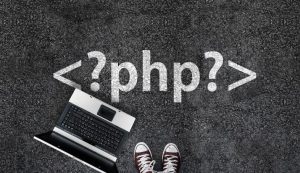Table of Contents
Developing an e-commerce website is essential for any business that aims to expand to the online market. Selecting the right programming language to build the e-commerce website is a crucial decision with a long-lasting impact. As such, careful consideration should be put into it to ensure the decision is fully supported and understood by members of an organization.
Importance of Different Programming Languages in Creating an E-Commerce Website
Of the many programming languages available, those used for creating websites, primarily e-commerce, have significantly shaped the online shopping experience. Different programming languages have different strengths in certain aspects of a website. For instance, HTML and CSS are frequently the front-end programming languages of choice due to their ability to create visually appealing web pages with responsive design that also impacts their SEO visibility.
A web development agency specializing in web design services would provide a range of programming languages during website development, presenting the advantages and disadvantages of each to help you make an informed choice.
Popular Programming Languages Used in an E-Commerce Website
Many programming languages are used to develop e-commerce websites, each with pros and cons. As mentioned earlier, the choice of programming language has significance on the success and performance of the website; some of the popular options include;
1. PHP

PHP, or Hypertext Preprocessor, is a popular programming language in website design. It is an easy-to-learn programming language, mainly used on the server side, that has significantly impacted the development of dynamic websites, particularly e-commerce platforms. It seamlessly integrates with various databases and web servers and, with a vast developer community, ensures continuous support and a wide range of resources for e-commerce projects. Popular e-commerce platforms built on PHP include Magento and WordPress.
WordPress is the most popular content management system (CMS) designed to allow users to host and build websites based on plugin and template architecture. One of the most popular and successful plugins found on WordPress is WooCommerce.
WooCommerce enables businesses to add e-commerce capabilities to their existing websites effortlessly. It offers a simple setup with customizable templates and a range of extensions to enhance functionality. It has found use in small and more extensive businesses due to its ability to scale up to accommodate the needs of the more demanding operations, making it a versatile choice. The WooCommerce ecosystem includes many plugins and third-party applications that extend its capabilities, making it a flexible option for various e-commerce requirements.
2. JavaScript
JavaScript is another popular programming language for developing websites and e-commerce stores. It is supported in most browsers and has broad community support with lots of resources and documentation easily accessible. It can be effectively used on both the front-end and back-end portions of the website while adding interactivity and improving the overall user experience.
On the front end, it works seamlessly with both HTML and CSS to produce visually appealing web pages to showcase the goods and services available; on the back end, frameworks such as Node.JS and Angular are JavaScript frameworks that enhance scalability and reduce server costs as they help in building responsive and mobile-friendly sites that ensure a seamless shopping experience.
3. Python

Python is an open-source programming language that is beginner-friendly and widely used for designing e-commerce websites. Its clear syntax enables developers to create and maintain e-commerce websites efficiently.
Due to its versatility, it can be utilized for a wide range of e-commerce tasks. Whether it’s backend development or data analysis for personalized recommendations and customer insights, Python offers various capabilities. Python web frameworks like Django and Flask provide powerful tools and libraries to create secure and scalable e-commerce backends.
4. Ruby on Rails
Ruby on Rails is another programming language used in creating e-commerce websites. It is widely known for its flexibility and ability to deliver highly scalable websites with numerous customizable features needed to add flexibility to the website. It may not be as popular as previously discussed languages, but it pulls its weight by streamlining the development process.
Ruby on Rails is a robust platform that can scale e-commerce websites as they expand. It guarantees reliable performance even during peak traffic periods. The Rails community has created numerous plugins and extensions designed specifically for e-commerce. These simplify the integration of features such as payment processing and inventory management.
Conclusion
A business seeking to enter the online market with an e-commerce website successfully must select suitable programming languages as they significantly impact a site’s functionality, user experience, performance, and scalability. Careful consideration of these languages is essential to building an e-commerce site that thrives in the competitive online market.


